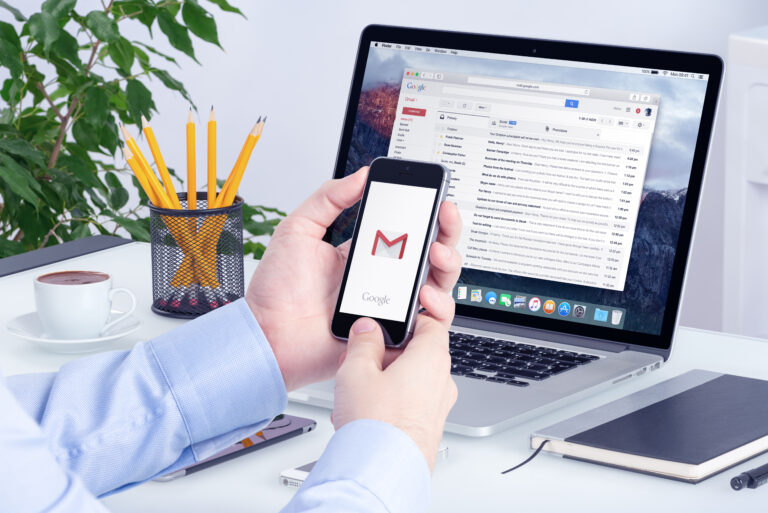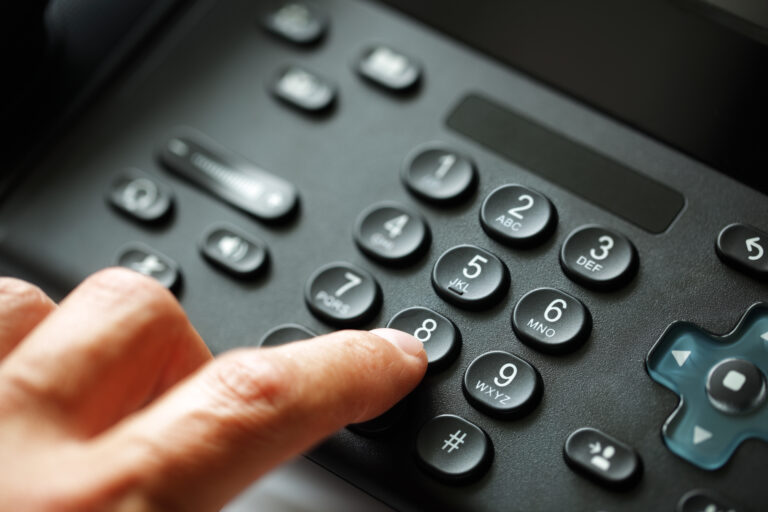From prescriptions and lab records to diagnostic images and referrals, medical records contain essential information. Some of this data consists of patient health information (PHI), the transmission of which is highly regulated by the Health Insurance Portability and Accountability Act (HIPAA) and other standards. Failure to comply with HIPAA regulations could result in patient confidentiality violations, costly lawsuits and fines, and a host of other negative outcomes, which is why it’s so important that organizations fax medical records with care.
In this article, we’ll dive into the important role that faxing still plays in the healthcare sector today and show you how proper faxing can impact your HIPAA compliance. We’ll also show you some best practices to follow when faxing medical records — and how MetroFax can help.
Why Faxing Medical Records Is Still Relevant
The popularity of email has left some asking the question: Has faxing become obsolete? Just take a look at the advancements in modern faxing technologies as well as the industries that depend on them, and you’ll see that the answer is a decisive no.
It’s true that physical fax machines are much less commonplace than they once were, but digital faxing technology possesses many functionalities that make it useful for faxing records of all types. Some of these features are:
- End-to-end security: Many online faxing services allow for password protection to secure the document at the endpoints, as well as dual-layer encryption to safeguard it during transmission.
- Compatibility: A quality faxing solution can integrate with electronic medical record (EMR) platforms and other systems, thereby simplifying providers’ workflows.
- Customization: Digital faxing platforms allow you to create helpful templates for cover sheets to notify the recipient that the document contains sensitive data, which is required for HIPAA compliance.
- Cloud storage: While legacy faxing systems required physical storage spaces that were difficult to maintain and secure, digital faxing lets you store medical records in the cloud. This enhances security, reduces storage and waste, and ultimately cuts down on costs.
Taken together, the benefits that online faxing offers makes it highly relevant for many industries today — especially for healthcare providers, for which security and compliance are a must.
HIPAA Compliance and Faxing
The Health Insurance Portability and Accountability Act is the primary regulatory standard governing the healthcare sector. It contains several requirements regarding how a healthcare team may send and store patient records, so organizations must educate themselves on how to fax their medical documents. Some of the most important secure online faxing practices involve:
- Confidentiality: HIPAA requires that healthcare organizations preface faxes containing PHI with a cover sheet notifying the recipient of the sensitivity of the information contained therein. This helps ensure that only the appropriate eyes view sensitive data, and while the exact wording of the cover letter isn’t specified, what is required is a cover sheet as a first line of defense.
- Security: HIPAA requires that a healthcare provider have some sort of security in place to safeguard its medical records. The exact nature of the security configurations may vary, but dual-key encryption and password protection are an excellent way to meet this requirement.
- Transparency: The specifics exceed the scope of this article, but HIPAA has multiple requirements dictating which parties may access medical records. Whether it’s a legal representative signing a release form or a healthcare provider making an online request, online faxing offers faster transmission with easier storage, creating a more accessible health information exchange.
Depending on certain circumstances, another HIPAA-compliance requirement may pertain to the traceability associated with the fax. If medical records are needed for legal proceedings, their time stamps can validate that they were received on time. This can also give online faxes more weight than emails in a medical lawsuit, giving organizations that much more credibility.
Best Practices for Faxing Medical Records
Whether it’s a mailing address or an authorization form for record requests, HIPAA compliance requirements make online faxing particularly effective for sending medical records of all types — if you follow best practices. Here are a few your health information management team should implement.
Password-Protect the Document When Appropriate
Online faxing offers dual-key encryption, which prevents documents from being intercepted and deciphered during transmission — but that’s not always enough. HIPAA regulations may require you to safeguard the document at the endpoints so that only the intended recipient can view it.
Utilize HIPAA-Compliant Cover Sheets
HIPAA compliance standards not only require that you provide a cover sheet to prevent PHI from being left out in the open; they govern the content of the cover sheet as well. Your cover sheet should not contain any PHI, but only the metadata that the intended recipient must view for the sake of receiving the fax.
To ensure your fax’s HIPAA compliance, consider substituting basic patient information such as their name or mailing address with a case ID instead. This will help protect their identity and minimize your risk of an accidental violation.
Verify the Fax Number Against Your Records
Before you ever send a medical record via fax, you should always check to make sure that the party making the request is who they say they are. When someone makes a medical record request, be sure to check the fax number against your records so that you don’t accidentally disclose your patient’s information to an unauthorized party.
Safely Fax Medical Records With MetroFax
Prescriptions, lab work, billing data, mailing addresses — medical records can contain a wide variety of health, financial, and even personal information. Online faxing provides an efficient, low-cost solution for transmitting such critical data — if organizations use it correctly.
At MetroFax, our secure online faxing service can help you send your medical records. Our platform not only boasts a series of state-of-the-art faxing capabilities such as electronic signatures and business software compatibility, but it also gives you the tools you need to comply with HIPAA and other regulations, keeping your practice secure. If you’d like to see how our faxing service can help your organization securely transmit medical records, see how it works and start faxing today.


